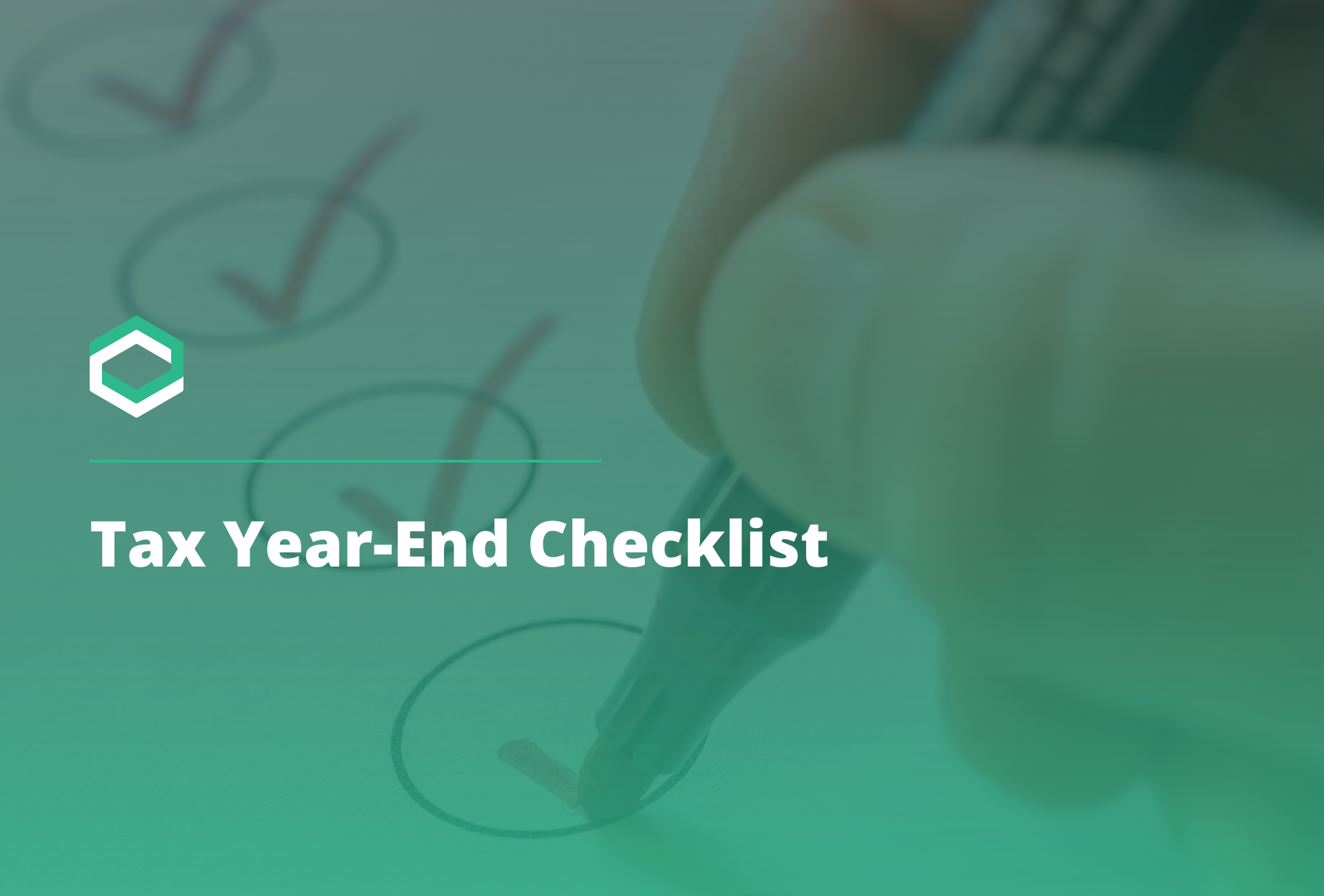Tax Year-End Checklist

Tax Year-End Checklist
4:43
Tax Year-End Checklist
By: Jarrod Galassi
As we approach the end of the year, taxpayers should take action to minimize their tax burden for 2024. The tips below apply to taxpayers of all backgrounds seeking both to reduce their 2024 tax liability and to prepare for the upcoming filing season.
Individuals who delay tax planning until the following year’s filing season often cannot execute effective planning measures, as the window to implement these measures elapses at the end of the year. Avoid common pitfalls by following the checklist below, thereby setting you up for success in 2024.
Tax Year-End Checklist
- Ensure your information is up to date with your employer and all financial institutions. Confirm that your employer, bank, and other financial institutions have your current email and mailing addresses. This will ensure tax documents such as forms W-2 and 1099 are delivered to the correct address.
- Review your 401(k) contributions for the year. Income contributed into a 401(k) account has the benefit of growing tax deferred or tax free, depending on the type of 401(k). The maximum contribution for 2024 is $23,000. Individuals 50 or older can make a catch-up contribution of an additional $7,500.
- Maximize any unutilized contributions to an HSA. Individuals can contribute up to $4,150 for self-coverage, or up to $8,300 for family coverage. Funds inside of an HSA may also be invested and grow tax free.
- Make last-minute charitable donations. For taxpayers who itemize deductions, December is the final chance to make last-minute charitable donations to reduce taxable income. Taxpayers can make donations in several ways including cash, property, or appreciated assets. Each of these donations is subject to different AGI limitations depending on the type of organization the donation is made to.
- Make 529 plan contributions for your children. Most states offer residents tax-advantaged accounts called 529 plans, which can be used to pay for higher education. Although state-level rules differ, the recent enactment of the Secure 2.0 Act has made these accounts much more lucrative irrespective of state regulations. As such, donors to a 529 plan may receive a deduction in the year of donation, the account grows tax deferred as the funds are invested, and any unused funds can be converted to a Roth IRA.
- Realize capital losses. Offload any investments that you have determined will only further depreciate. Net capital losses up to $3,000 can be deducted in the current year, with any excess carried forward to offset future capital gains.
- Avoid underpayment penalties by ensuring sufficient payments and withholding. Use the safe harbor method or project estimated tax liabilities to reduce or eliminate underpayment penalties. This applies to both federal and state income tax.
- Gather all records of childcare expenses. If you paid for childcare so that you (if filing individually) or your spouse (if filing jointly) could work, seek work, or attend school, then some these expenses may be eligible for a federal tax credit. Speak with a tax professional at Evolved Tax and Advisory to determine how best to collate and calculate these costs.
- Remit fourth quarter state-level pass-through entity tax (PTET) payments. Many states have enacted a pass-through entity tax to alleviate the tax burden on filers limited by the $10,000 state and local tax deduction cap. Each state has a unique method of executing the tax, but the mechanics function similarly across each state—that is, the income is taxed to the entity and the owners receive an applicable credit to offset personal state tax liability.
- If self-employed, ensure your business’s books and records are up to date. Accurate record-keeping is key to an efficient and correct filing—and, in the unlikely event of an audit, errorless record keeping will be your friend.
- Schedule a call with your tax advisor to avoid any surprises in April 2025. It’s better to ask questions now than wait until the deadline looms. Check in with your trusted tax advisor before the calendar turns (or early in January 2025) to touch base.
- Turn to Evolved Tax and Advisory with questions. Contact us for personalized help with your year-end tax review. Our team of advisors is qualified to give personalized assistance that works best for your unique needs.

Author:
Jarrod Galassi
Jarrod is a certified public accountant with deep experience guiding private equity firms and their partners on federal and state tax issues related to compliance, due diligence, and advisory activities.


